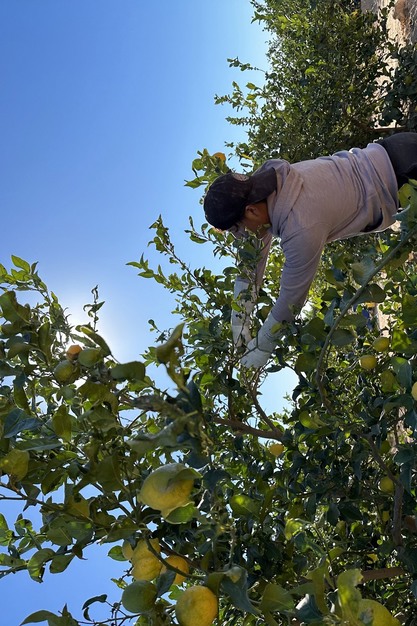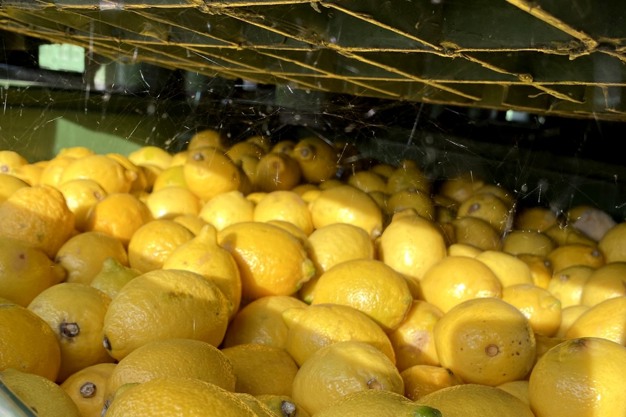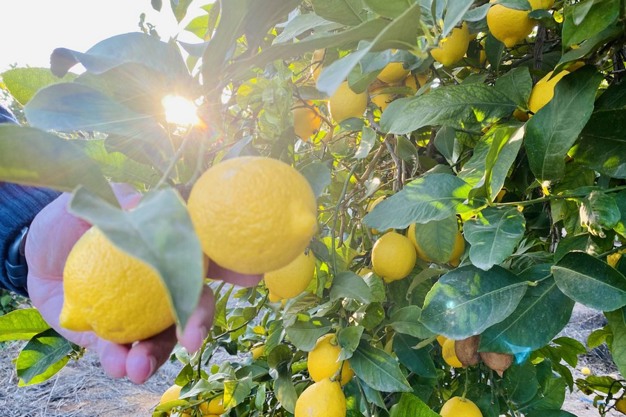According to Ailimpo, the 20% to 30% drop in the lemon production, caused mainly by climatic factors, will facilitate price stabilization, as the market won't be flooded with excess supply. "This, in combination with the high international demand, will allow prices to remain balanced, both for fresh and processed products," says Diego Costa, of Riverbend.

"Also, the premature end of South African exports has led to Spanish lemons arriving in the fresh market around three weeks earlier, which has boosted prices at the beginning of the season. As far as the industry is concerned, I believe that the market conditions will be better. We will continue to have raw material, but the supply will be more stable and there will be a lower risk of oversupply."
"As for prices, they will tend to remain more balanced, as this year we won't have a 300,000 ton surplus as in the past; however, we also have to keep an eye on the development of the campaigns in other producing countries, such as Turkey, as that could have an impact on our own season."

"In Spain, we are focusing on the production of essential lemon oil".
The global lemon market depends on the interaction between the Northern and Southern Hemisphere, which operate in opposite but complementary ways. Argentina, for example, devotes around 80% of its lemon production to processing, while Spain allocates between 70% and 80% to the fresh market, processing only 20% to 30%.
"Although both countries are big lemon producers, we have significantly different approaches, especially when it comes to the supply of processed products. Labor costs, phytosanitary controls, energy and transport costs are hurdles for Spain to keep a competitive position in the conventional lemon juice and concentrate market."

"Essential lemon oil is one of our most valuable by-products, which we obtain through cold mechanical processes. This oil is highly appreciated in the beverage industry, mainly to add taste to soft drinks, but it is also used in the pharmaceutical, perfume, cleaning and food sectors. It is a versatile product with great added value for various industries."
"Also, Spain is a leader in the production of organic lemons and we are a key competitor in the organic market. Our track record in this sector, as well as our sustainable approach, gives us an advantage over other countries, such as Argentina."

"Our goal is to reach zero carbon emissions by 2050"
"At Riverbend, we have a strategic plan up until 2030 with a strong emphasis on efficiency, sustainability, social responsibility and the reduction of our carbon footprint."
"One of our achievements, in fact, is that we have reduced our cumulative carbon footprint by 35% since 2020, and we aim to reach zero emissions by 2050. Each year, we continue to develop initiatives to offset our environmental impact and improve our contribution to society."
"Our most recent project is the expansion of our photovoltaic park, adding an additional 440 kW to the existing 330 kW. With this capacity, we will be able to be energy self-sufficient for much of the year; a crucial development to ensure our sustainability and efficiency, to improve our results and become even more competitive.
"We are also aligned with the initiatives promoted by Ailimpo, which has backed the Sustainable Lemon and Grapefruit Production certification in Spain. This effort, together with our energy efficiency projects, such as the expansion of the photovoltaic park, strengthens our commitment to sustainability and carbon footprint reduction."
"We believe that industry prices have peaked in the orange market"
As for oranges, another important citrus fruit for the industry, "the prospects for this year's production in Spain are good, especially in terms of fruit size and yields. This is essential for the industry, as it will allow us to process oranges more efficiently and competitively."
"Conditions in the orange market are still improving, mainly due to the global shortage of this fruit; however, we believe that prices have peaked, and we are likely to see them being replaced with other products, such as mandarins, multi-fruit combinations or concentrate-based blends, which could influence market dynamics in the coming years."
 For more information:
For more information:
Riverbend
Carretera de Abanilla 30
30140 Santomera, Murcia, Spain
Tel.: +34 968 277 050
diegocosta@riverbend.es
http://riverbend.es
